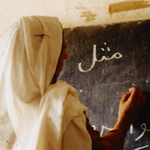Past Projects

- The Caroline Center
- Loomis, C., Brodsky, A. E., Arteaga, S. S., Benhorin, R., Rogers-Senuta, K., Marx, C. M., & McLaughlin, P. (2004). What Works in Adult Educational and Employment Training? Case Study of a Community-Based Program for Women. Journal of Community Practice, 11, 27-45.
- Brodsky, A.E., Rogers-Senuta, K., Weiss, C.L., Marx, C. M., Loomis, C., Arteaga, S., Moore, H., Benhorin, R, & Casteganera, A. (2004). When one plus one equals three: The role of relationships in community research. American Journal of Community Psychology, 33(3/4), 229-241.
- Brodsky, A.E. & Ovwigho, P. C. (2002). Swimming Against the Tide: Connecting Low-Income Women to Living Wage Jobs. Journal of Poverty. 6(3), 63-87.
- At the invitation of the Caroline Center Executive and Associate Directors, beginning in 1998 we conducted mixed method formative evaluation of the programs and outcomes at Caroline Center. Our applied goal was to help Caroline Center better understand the needs of their students, program strengths, and areas for improvement. Our theoretical goal was to gain knowledge of how multiple communities, risk and protective factors influenced the educational and economic progress of low income, urban women and their children. Data collection included administrative data, focus groups, individual interviews with students and staff, and participant observations during. This program of research lasted until 2006 and produced 1 senior honors thesis, 3 master's theses, 2 dissertations, and 5 journal articles.
- Related Publications:
- Resilience Single Mothers Raising Daughters in Risky Neighborhoods
- Brodsky, A.E. (2000). The role of spirituality in the resilience of urban, African-American, single mothers. Journal of Community Psychology, 28(2), 199-220.
- Brodsky, A.E. & DeVet K.A. (2000). Planful parenting: Parenting goals and discipline strategies of resilient, urban, African American single mothers. Journal of Prevention and Intervention in the Community, 29(1/2), 159-178.
- Brodsky, A.E. ( 1999). Making it: The components and process of resilience in urban African-American single mothers. American Journal of Orthopsychiatry, 69(2), 148-160.
- Brodsky, A.E. (1996) Resilient single mothers in risky neighborhoods: Negative psychological sense of community. Journal of Community Psychology, 24(4), 347-363.
- Most prior research has focused largely on pitfalls for urban, low-income African American single mothers. This qualitative study focused on resilience single mothers and using semi-structured interviews allowed participants to define and describe their own experiences, both stresses and strategies for coping. Ten women who had been single mothers for at least two years were identified as resilience by school-based key informants and participated in two, two- hour long individual interviews. Daughters also participated in an hour long interviews to triangulate mother's views. The risky urban neighborhoods in which these families lived are characterized by poverty, violence, crime and drugs. Participants described a unique balance of both the stresses and resources existing in eight dimensions in their lives: self-attributes, role as parent, family, friends, male significant others, money spirituality and their neighborhoods. Each mother's resilience was created through a balance based on a unique person-environment fit. Resilience or "making it" was found to be both an outcome - the attainment of goals - and a process of continuously striving for further. Participants further balanced appreciation of current successes with the motivation to work for more. This work presents a more heterogeneous and emic picture of urban, low-income, African-American single mothers, sheds light on the processes of resilience and "spontaneous prevention", and has implications for the design and implementation of intervention to supports success among other women in similar situations.
- Related Publications: